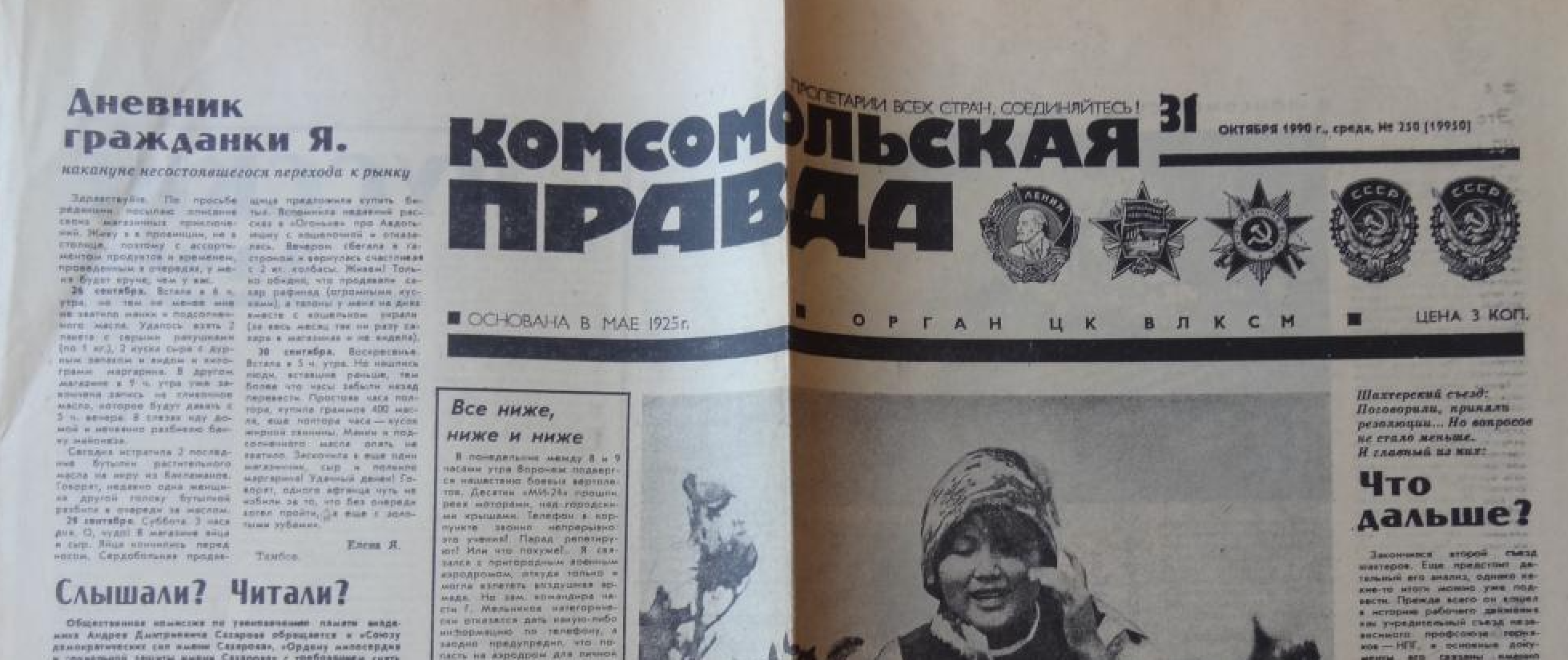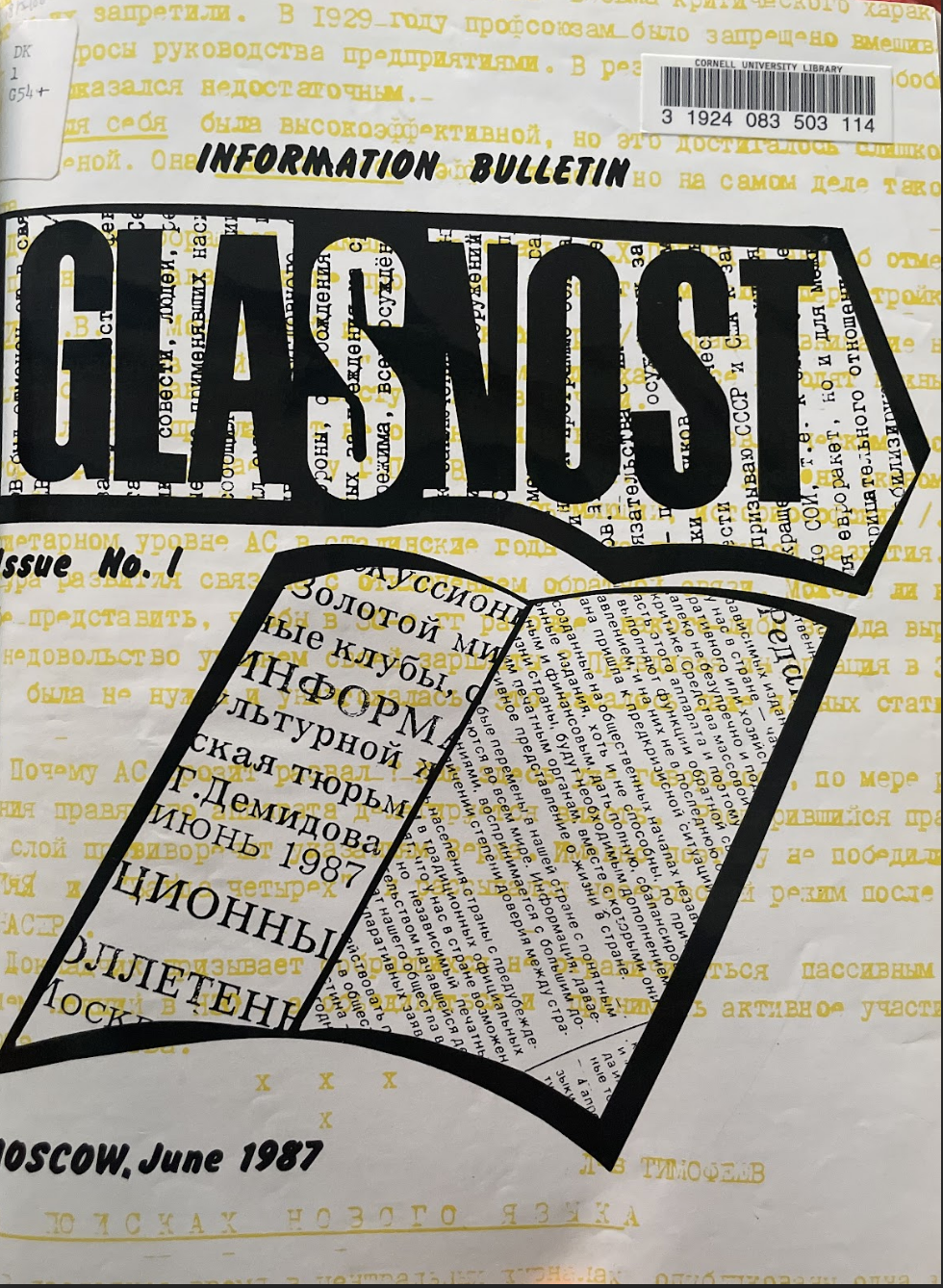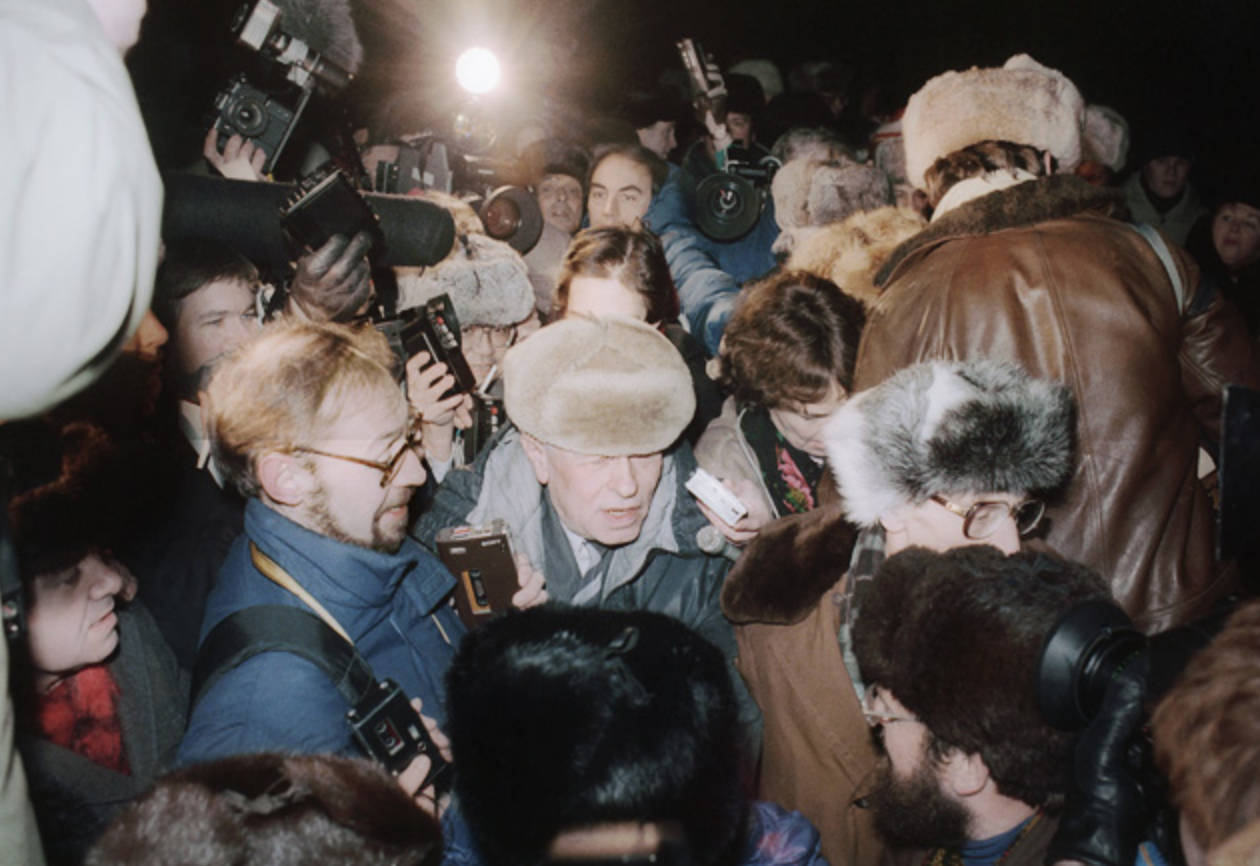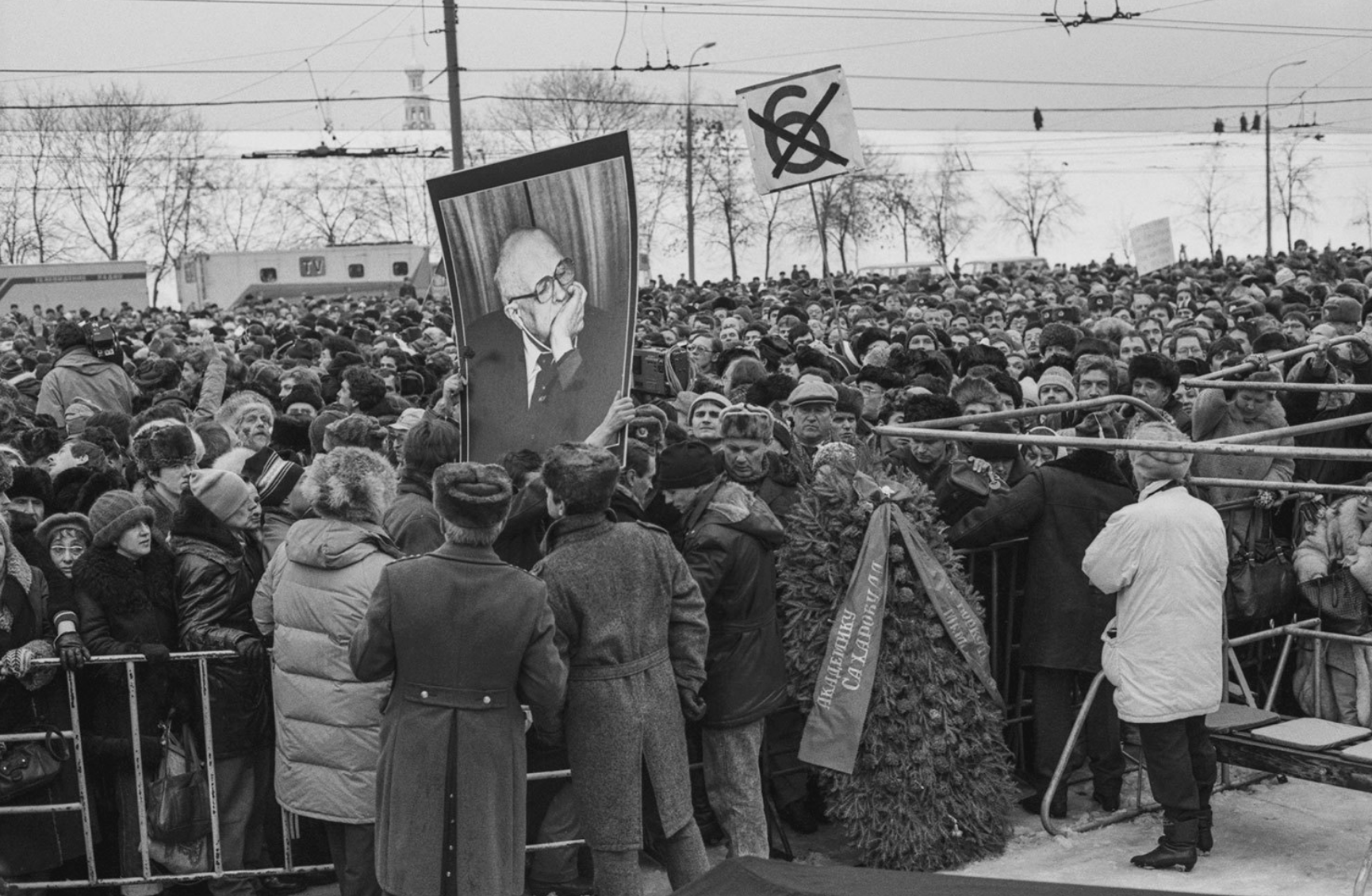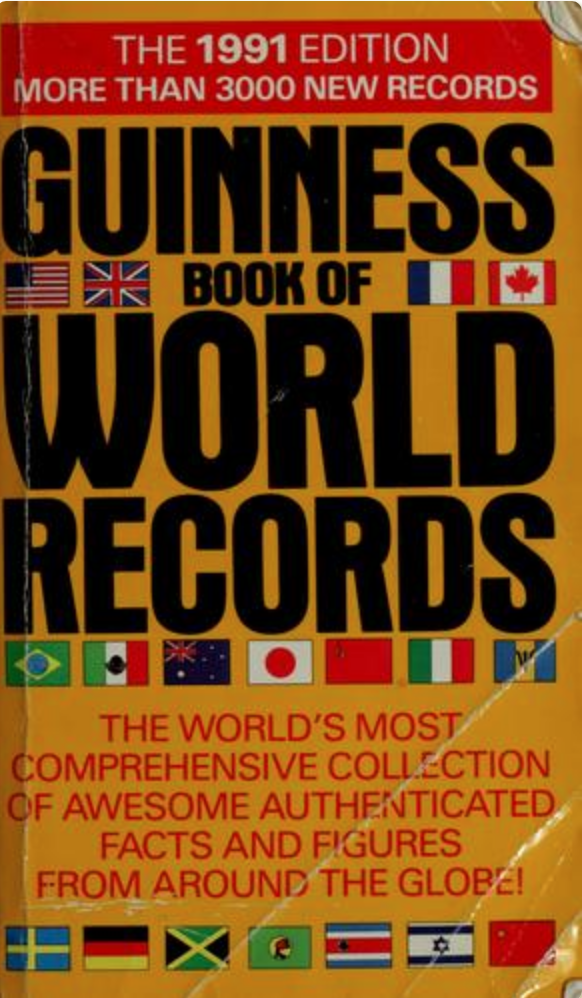Search Results
Search Terms
“Politburo” versus the specter of communism during the 1993 Constitutional Crisis
A clip from “Politburo,” a weekly commentary show from Aleksandr Politkovsky, a former host of “Vzgliad.” This episode aired in the days following the April referendum that solidified Yeltsin’s position, and, in particular, follows People’s Deputy (and Yeltsin opponent) Alexander Rutskoy's first salvo in the so-called "Kompromat Wars," in which he made public 11 suitcases’ worth of material allegedly documenting Yeltsin's corruption. The episode ends with some May Day-themed anti-communist “chastushki” (Russian limericks).
Piskunov’s “Kitchen Diary” in “Komsomolskaya pravda”
For almost a month in 1990, a student named S. Piskunov documented regional shortages in a "kitchen diary," responding to “Komsomol’skaia pravda”'s call for readers to track the impacts of Gorbachev's economic reforms on daily life.
"Glasnost. Information Bulletin"
The front cover of Glasnost. Information Bulletin from 1987, along with the Editor’s introduction to the first issue. One the first self-published journals to be released during perestroika, Glasnost was an early instance of the fledgling independent late-Soviet press.
Sakharov returns from Gorky
The return from exile of physicist, dissident, and 1975 Nobel Peace Prize laureate Andrei Sakharov (1921-1989) was a media sensation—here emblematized in a photograph of reporters swarming him as he steps out of a car in Moscow. His return marked a powerful popular comeback for the renowned human rights activist who, despite years of official condemnation, received growing press support through perestroika until his death in 1989.
Death and funeral of Andrei Sakharov
Andrei Sakharov (1921-1989), a physicist and Nobel Peace Prize-winning dissident, returned to Moscow from internal exile in 1986. He quickly became one of the USSR's most popular and respected public figures, surpassing even Gorbachev in some polls. His sudden death in December 1989 drew tens of thousands of mourners, despite a muted official response.
"Komsomolskaya pravda" sets a Guinness World Record
In May 1990, the long-running Soviet newspaper “Komsomolskaya pravda” set a world record with nearly 22 million daily copies. This staggering total marked the peak of Soviet print media's reach before the 1990 Press Law shifted financial responsibility to outlets themselves, making such high print runs unsustainable.

